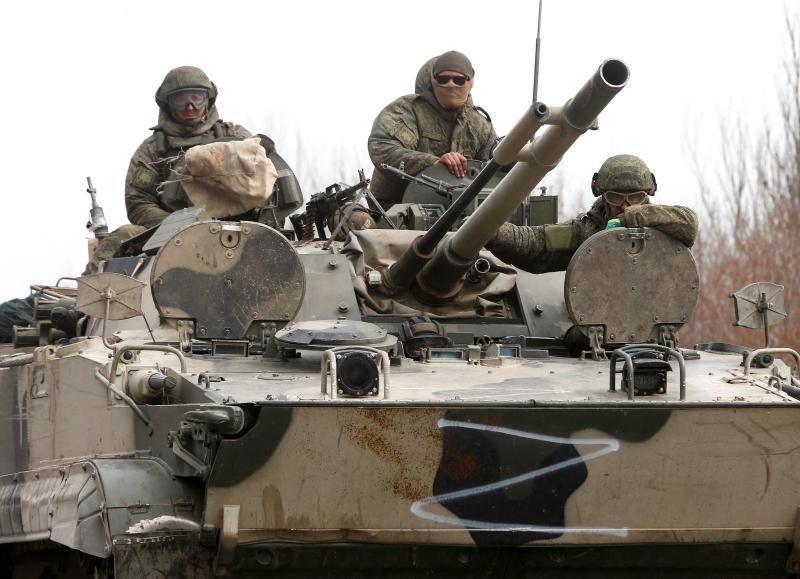Service members of pro-Russian troops drive an armoured vehicle during Ukraine-Russia conflict on a road outside the southern port city of Mariupol, Ukraine April 10, 2022. [Reuters, Alexander Ermochenko]
×
The Standard e-Paper
Smart Minds Choose Us






